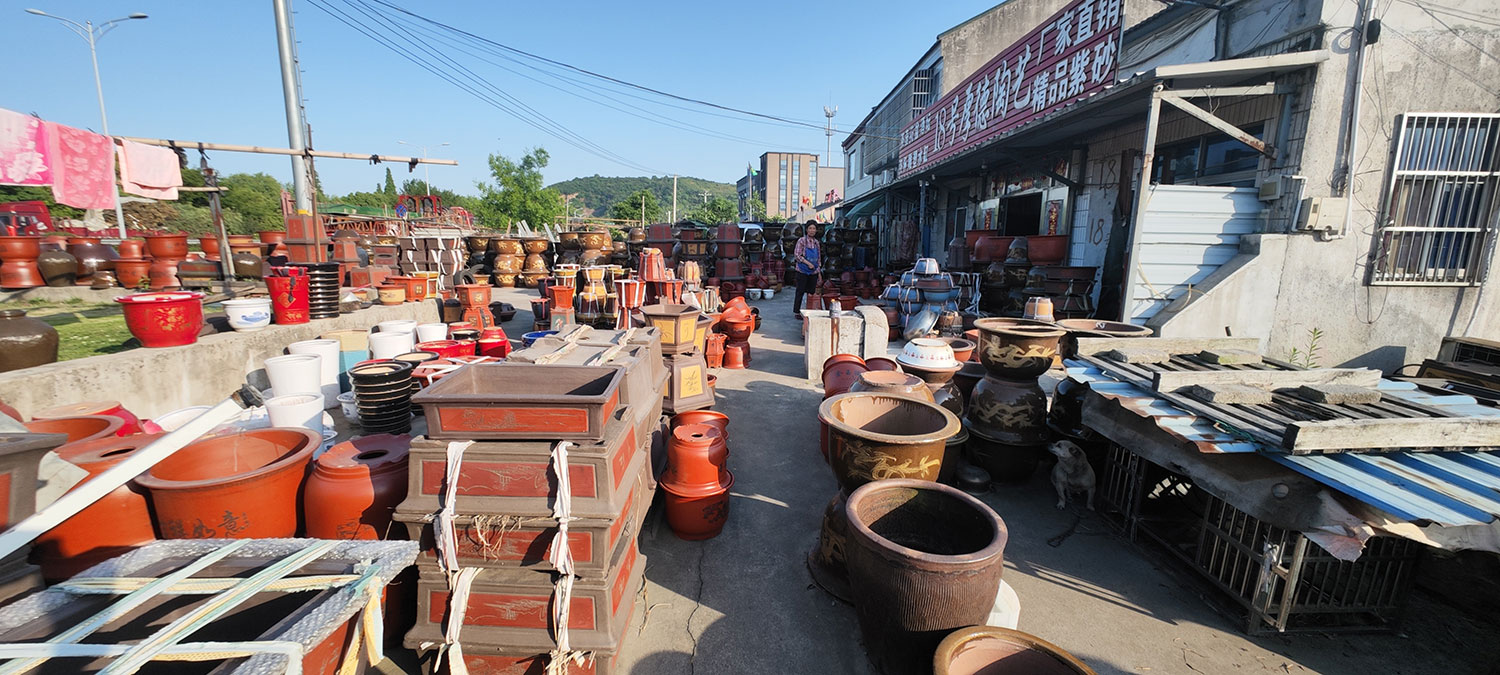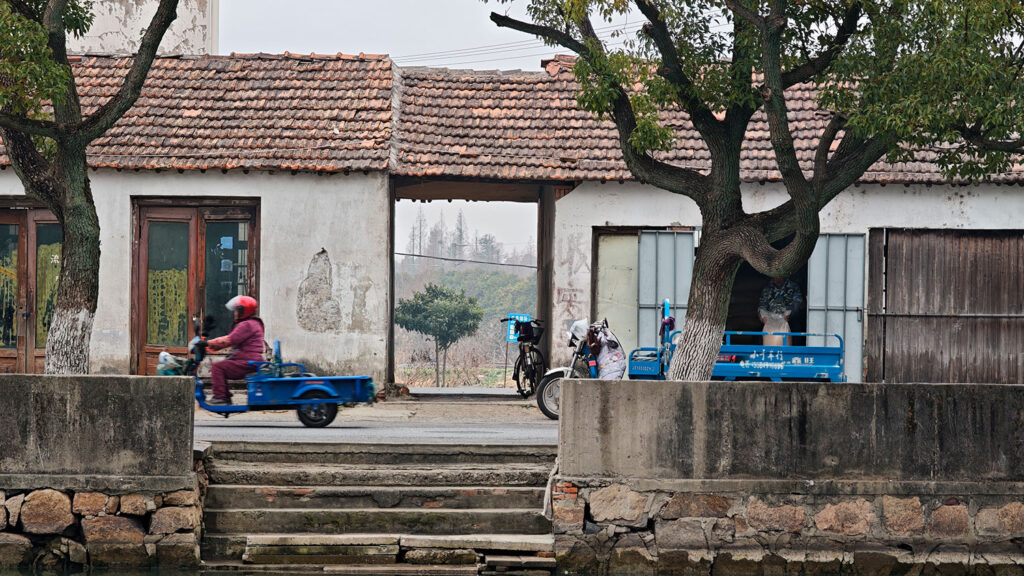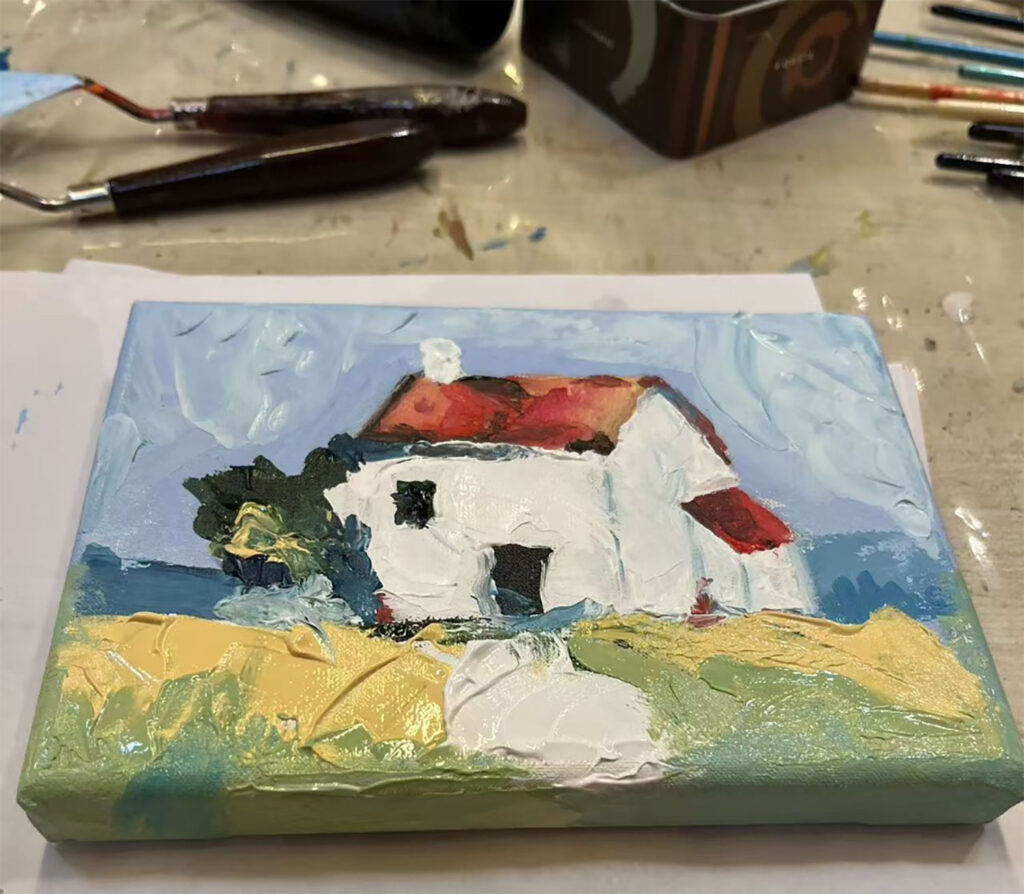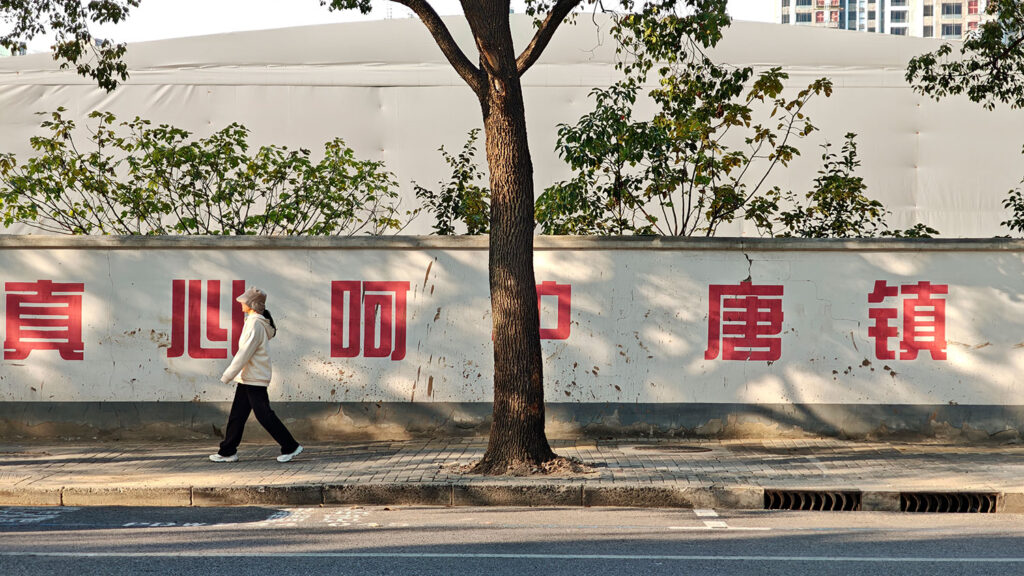Yixing (宜兴) is like many lower-tier cities, in that it has an old city center and then a new part. The two halves haven’t yet grown enough to be fully merged, so for now they still feel like two separate cities — despite sharing the name. Obviously, we’re visiting the older part. Shushan Gunan Street (蜀山古南街) is wedged between a hill and a river, and in the past, lots of factories stood here making products of 紫砂Zǐshā: purple sand — or more commonly known as ‘Yixing ware’.
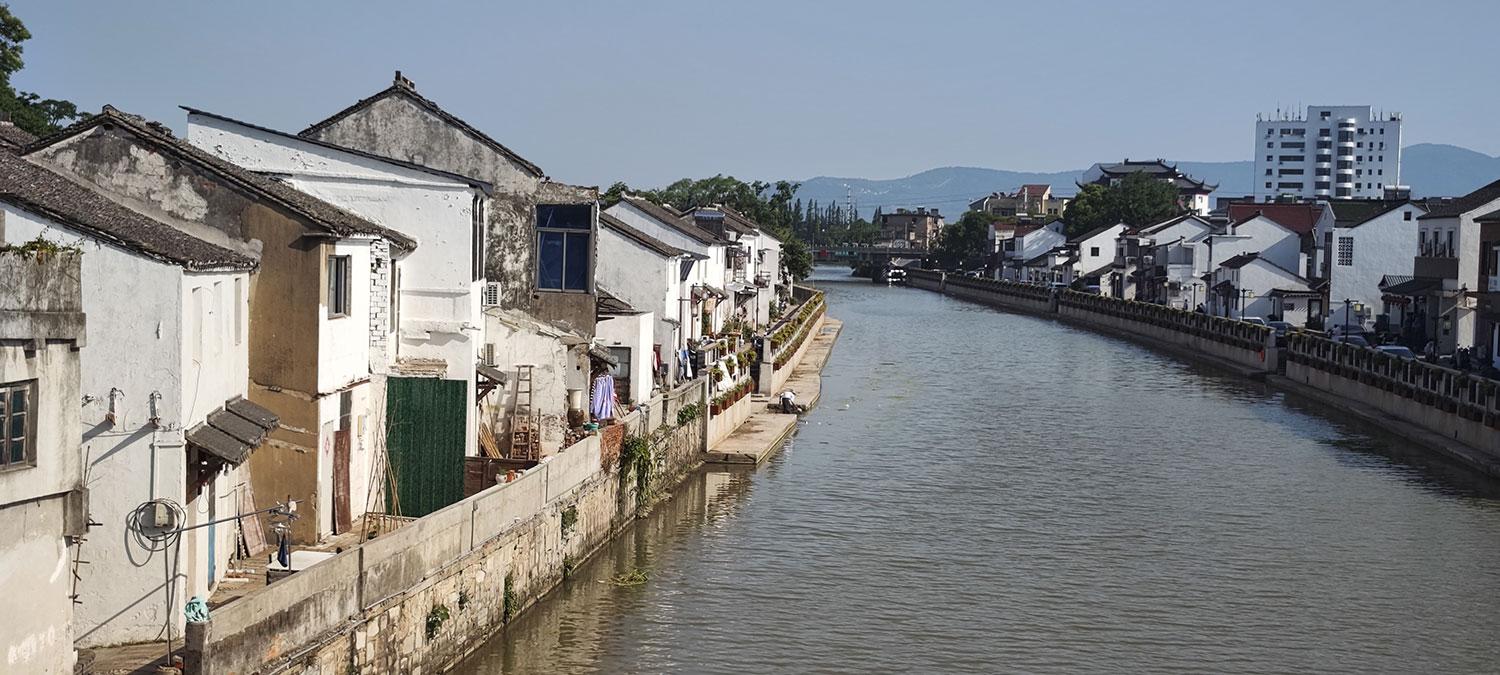
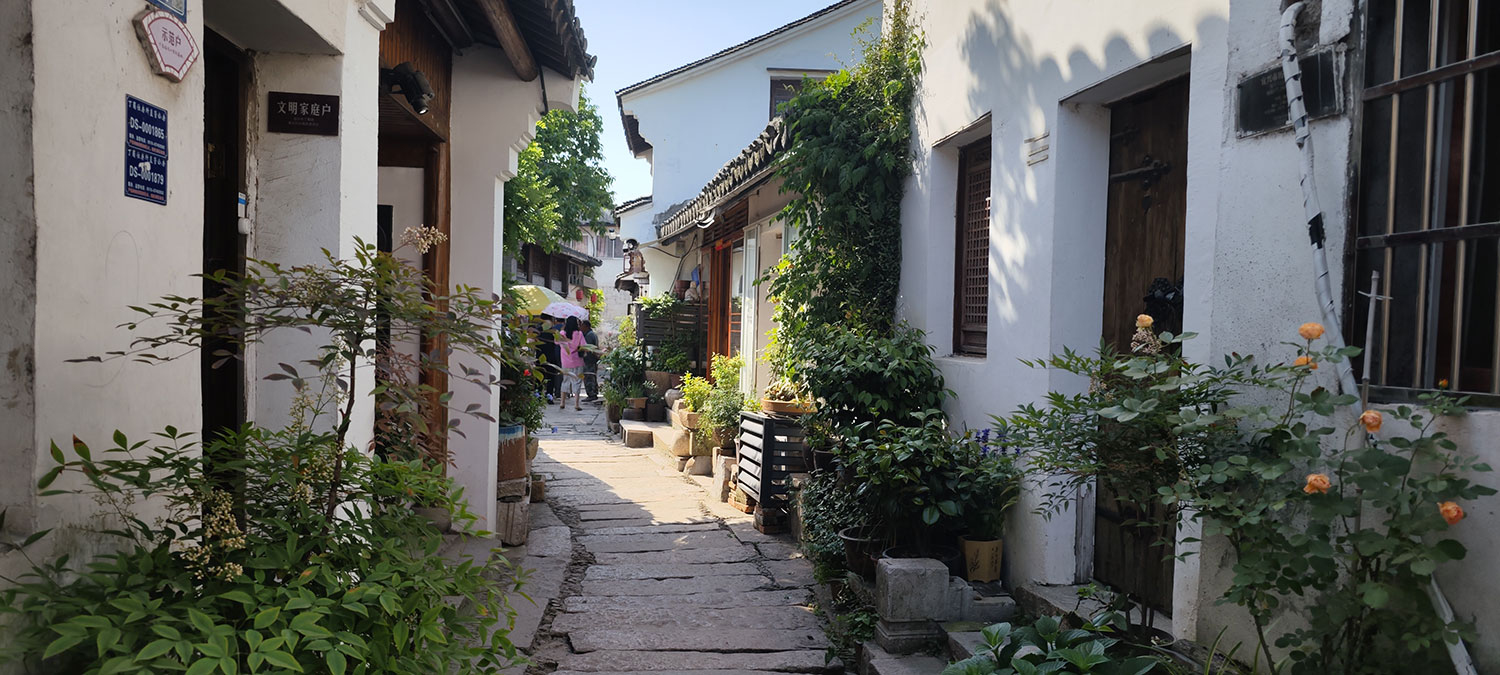
When looking at a photo in an exhibition, Eva says: “When I was young, stores had no bottles of soy sauce or vinegar. You brought your own bottle and they filled it with a spoon from a huge pot. Those pots were all made from Yixing ware.”
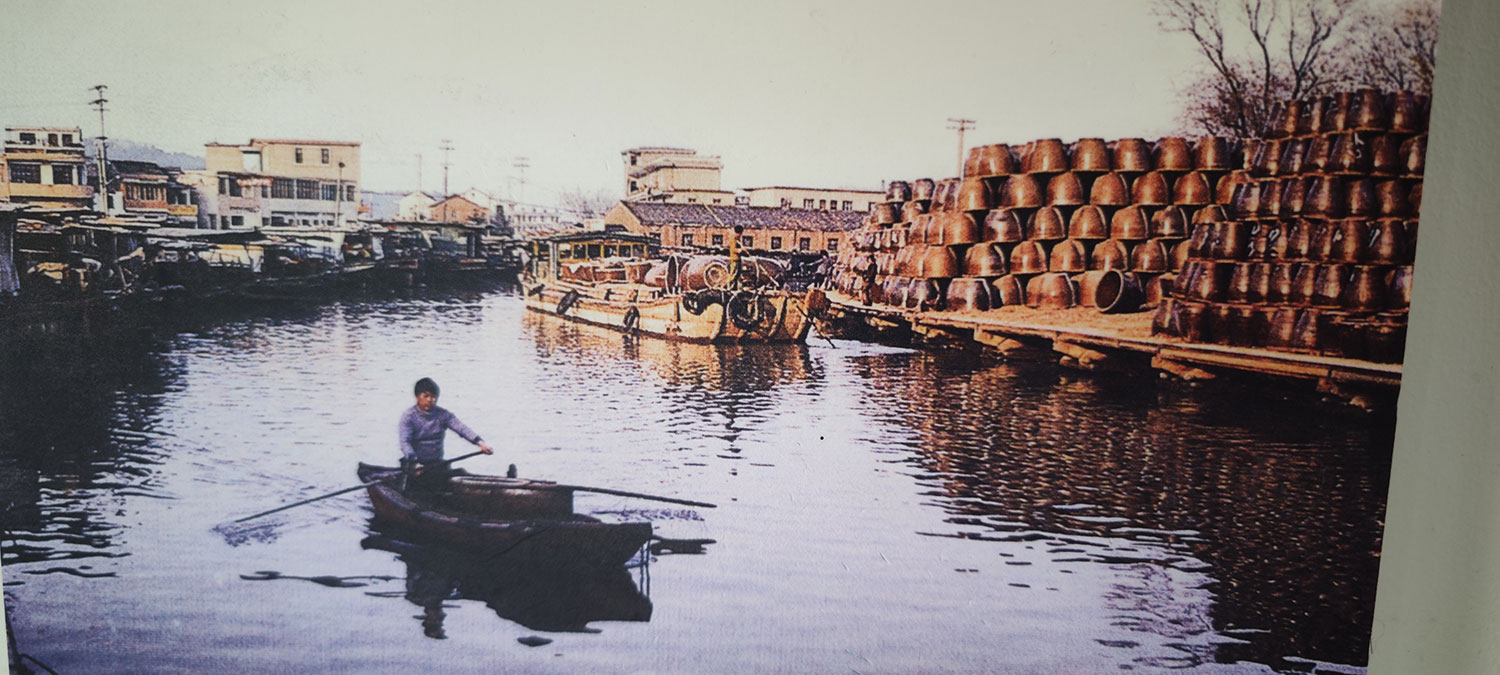
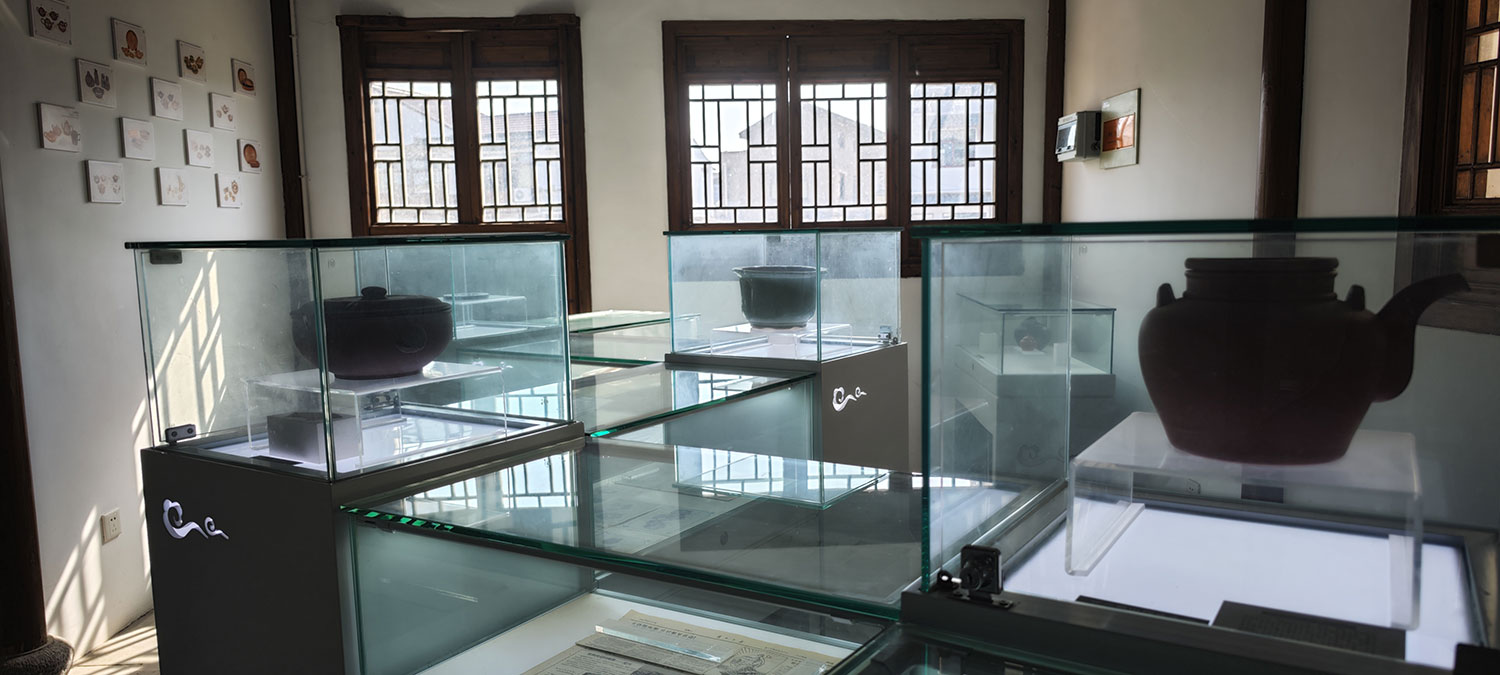
But the factories are all gone, at least in this area. Rather than big pots made by rough hands, now artists show their delicate craftsmanship, creating tiny teapots or figurines — which are more suitable for tourists. Is it a bit pretentious?


Well. In ‘Burning the Days’, James Salter talks about a French riddle: ‘Who will console us?’ (Qui nous console?), to which the answer is ‘Le temps’, which in French means either the weather or time.
The factories and kilns are gone, but a single chimney remains.
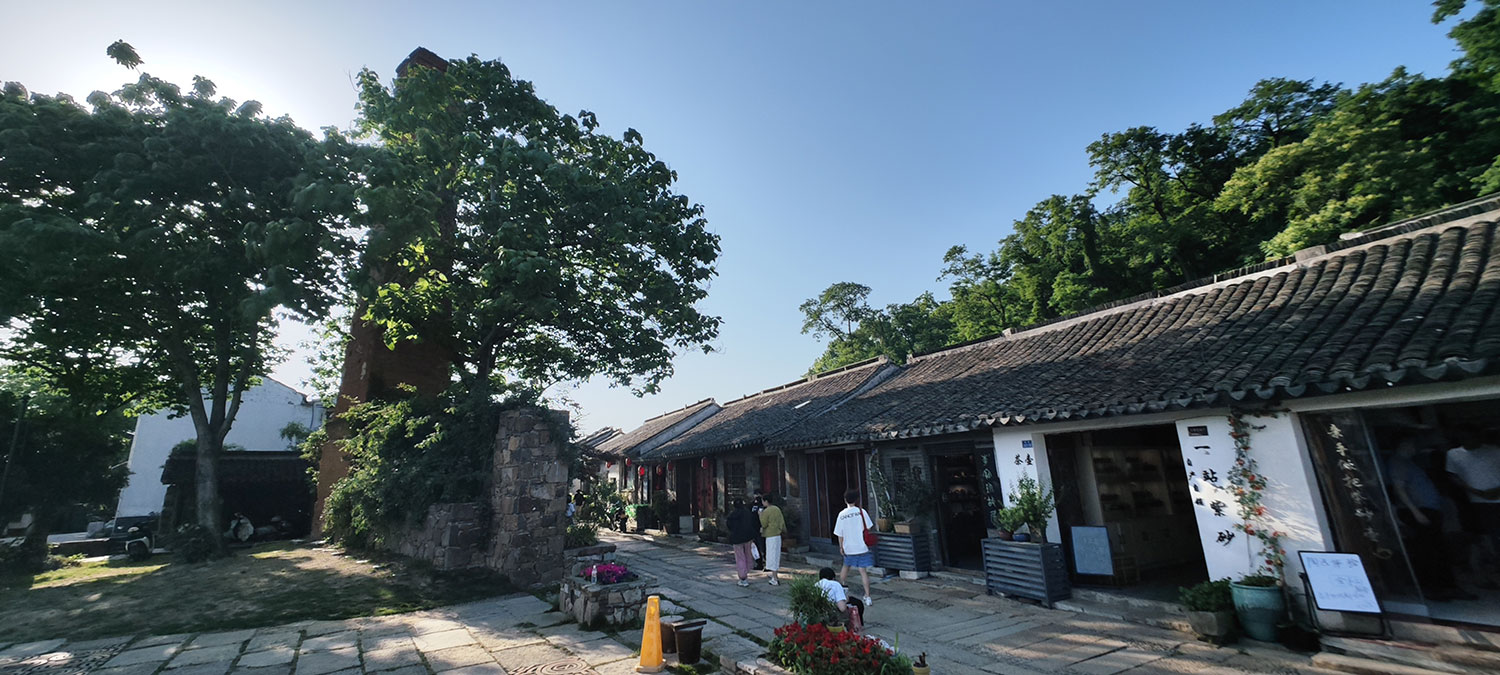
(Outside the touristy area though! Can you spot the dog? I didn’t, until he started barking.)
